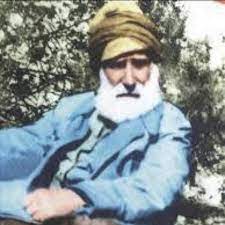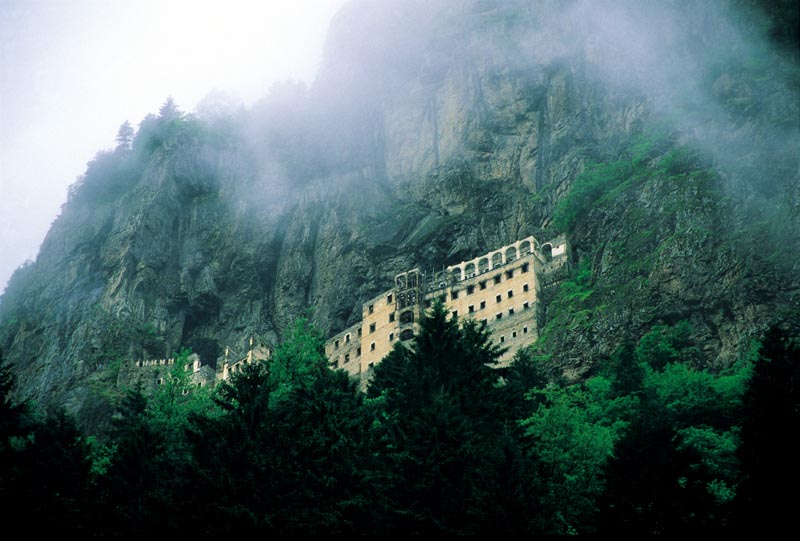
The Sümela Monastery (Greek:Turkish: Sümela Manastırı) stands at the foot of a steep cliff facing the Altındere valley in the region of Maçka in Trabzon Province, Turkey. It is a major tourist attraction located in the Altındere National Park. It lies at an altitude of about 1200 metres overlooking much of the alpine scenery below.
The monastery was founded in the year 386 (during the reign of the Emperor Theodosius I, AD 375 – 395) by two Athenian priests – Barnabas and Sophronius according to the Turkish Ministry of Culture [1]. Legend states that they found an icon of the Virgin Mary in a cave on the mountain and decided to remain in order to establish the monastery.
During its long history, the monastery has fallen into ruin several times and been restored by successive Emperors; During the 6th Century AD, it was restored and enlarged by General Belisarius at the behest of Justinian [2].
It reached its present form in the 13th century after gaining prominence during the reign of Alexios III (1349 – 1390) of the Komnenian Empire of Trebizond (established in 1204). At that time, it was granted an income from imperial funds. During the time of Manuel III , son of Alexius III, and the reigns of later princes, Sümela gained further wealth from new imperial grants.

Following the conquest by the Ottoman Sultan Mehmed II in 1461, it was granted protection by order of the Sultan and given rights and privileges which were renewed by following Sultans. Monks and travellers continued to journey there throughout the years and the monastery was extremely popular up until the 19th century.
The Monastery was seized for a time by the Russians during the occupation of Trabzon between 1916 – 1918.
It was finally abandoned in 1923, following the population exchanges between Greece and Turkey after the Treaty of Lausanne.
Today its main purpose is as a tourist attraction. Its place overlooking the forests and streams below make it extremely popular for its aesthetic attraction as well as for its cultural and religious interests. The Turkish government is currently undertaking necessary restoration works to the site.


